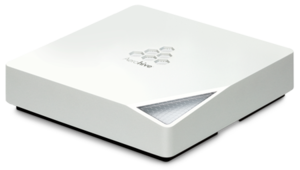Difference between revisions of "Aerohive AP330"
Jump to navigation
Jump to search
(Added Aerohive AP330 page.) |
(Skeleton for instructions and first benchmark.) |
||
| Line 2: | Line 2: | ||
[[Category:Aerohive]] | [[Category:Aerohive]] | ||
[[File:Aerohive_AP330.png|thumb|Aerohive AP330]] | [[File:Aerohive_AP330.png|thumb|Aerohive AP330]] | ||
| − | {{Warning|This device must be flashed via UART.}} | + | {{Warning|This device must be flashed via UART. Do not buy a stock AP330 unless you are comfortable with the install process below.}} |
= Files = | = Files = | ||
| + | [https://wikidevi.wi-cat.ru/Aerohive_HiveAP_330 WikiDevi Page] | ||
| + | |||
[https://downloads.openwrt.org/snapshots/targets/mpc85xx/p1020/ OpenWRT Snapshots] | [https://downloads.openwrt.org/snapshots/targets/mpc85xx/p1020/ OpenWRT Snapshots] | ||
| + | |||
| + | [https://git.openwrt.org/?p=openwrt/openwrt.git;a=commit;h=f2b7d9dc1ca3d33f14961cf2885639f4f9e8965e OpenWRT commit message] | ||
| + | |||
| + | = Flashing From The Stock Firmware = | ||
| + | Aerohive routers come with a super locked down operating system on them. They're optimized for management via something called the Hive Manager, which is a cloud platform owned by Aerohive. This obviously won't do! | ||
| + | |||
| + | In order to flash OpenWrt, we will need to interrupt the boot-up process using a serial cable and a program called minicom. We will then load OpenWrt directly into RAM, and boot from memory. After booting a temporary copy of OpenWrt in this way, we can run a sysupgrade within OpenWrt to flash OpenWrt onto the hard-drive. This is not as hard as it sounds. Before proceeding, you will want to [https://www.microcenter.com/product/509242/qvs-usb-(type-a)-male-to-rj-45-male-cisco-rs232-serial-rollover-cable-blue---6-ft obtain a console cable], and download [https://wiki.archlinux.org/index.php/Working_with_the_serial_console#Minicom minicom]. | ||
| + | |||
| + | == Interrupt The Boot Process == | ||
| + | # Connect your laptop to the Aerohive with a console cable | ||
| + | # launch `minicom` in a terminal | ||
| + | # Connect the Aerohive to power, and quickly press any key to interrupt the boot process | ||
| + | # You should see a prompt starting with <pre>=></pre> | ||
| + | == Use Tftpboot To Load OpenWrt Into Memory == | ||
| + | There are a couple commands missing from the commit message. | ||
| + | |||
| + | == Perform The Sysupgrade == | ||
| + | |||
| + | = Benchmarks = | ||
| + | == Clearnet Wireless Traffic == | ||
| + | ~ 70Mbps | ||
| + | <pre> | ||
| + | Client connecting to 192.168.1.137, TCP port 5001 with pid 28923 | ||
| + | Write buffer size: 128 KByte | ||
| + | TCP window size: 246 KByte (default) | ||
| + | ------------------------------------------------------------ | ||
| + | [ 3] local 192.168.1.204 port 34440 connected with 192.168.1.137 port 5001 (ct=1.75 ms) | ||
| + | [ ID] Interval Transfer Bandwidth Write/Err Rtry Cwnd/RTT NetPwr | ||
| + | [ 3] 0.0000-10.1140 sec 72.0 MBytes 59.7 Mbits/sec 576/0 0 -1K/3708 us 2013.12 | ||
| + | </pre> | ||
| + | == Yggdrasil Wireless Traffic == | ||
| + | ??? | ||
Revision as of 14:44, 7 February 2020
Warning: This device must be flashed via UART. Do not buy a stock AP330 unless you are comfortable with the install process below.
Contents
Files
Flashing From The Stock Firmware
Aerohive routers come with a super locked down operating system on them. They're optimized for management via something called the Hive Manager, which is a cloud platform owned by Aerohive. This obviously won't do!
In order to flash OpenWrt, we will need to interrupt the boot-up process using a serial cable and a program called minicom. We will then load OpenWrt directly into RAM, and boot from memory. After booting a temporary copy of OpenWrt in this way, we can run a sysupgrade within OpenWrt to flash OpenWrt onto the hard-drive. This is not as hard as it sounds. Before proceeding, you will want to obtain a console cable, and download minicom.
Interrupt The Boot Process
- Connect your laptop to the Aerohive with a console cable
- launch `minicom` in a terminal
- Connect the Aerohive to power, and quickly press any key to interrupt the boot process
- You should see a prompt starting with
=>
Use Tftpboot To Load OpenWrt Into Memory
There are a couple commands missing from the commit message.
Perform The Sysupgrade
Benchmarks
Clearnet Wireless Traffic
~ 70Mbps
Client connecting to 192.168.1.137, TCP port 5001 with pid 28923 Write buffer size: 128 KByte TCP window size: 246 KByte (default) ------------------------------------------------------------ [ 3] local 192.168.1.204 port 34440 connected with 192.168.1.137 port 5001 (ct=1.75 ms) [ ID] Interval Transfer Bandwidth Write/Err Rtry Cwnd/RTT NetPwr [ 3] 0.0000-10.1140 sec 72.0 MBytes 59.7 Mbits/sec 576/0 0 -1K/3708 us 2013.12
Yggdrasil Wireless Traffic
???
